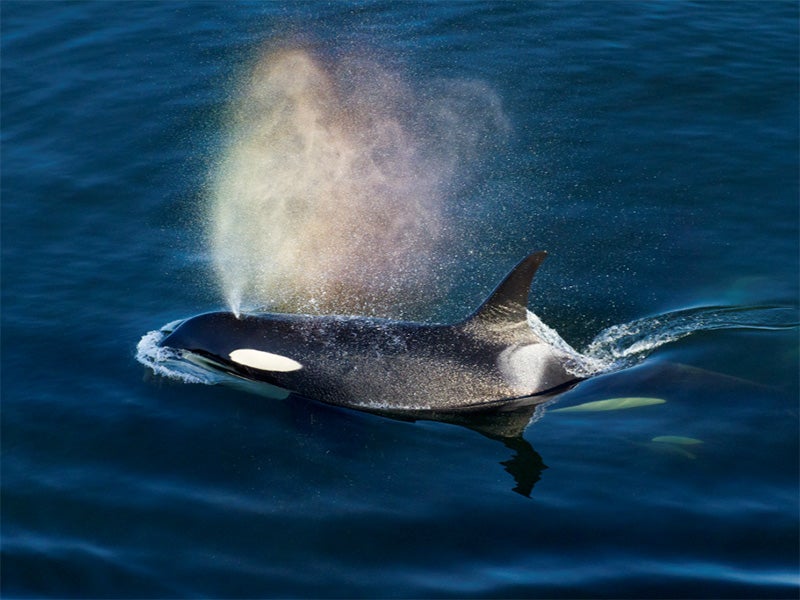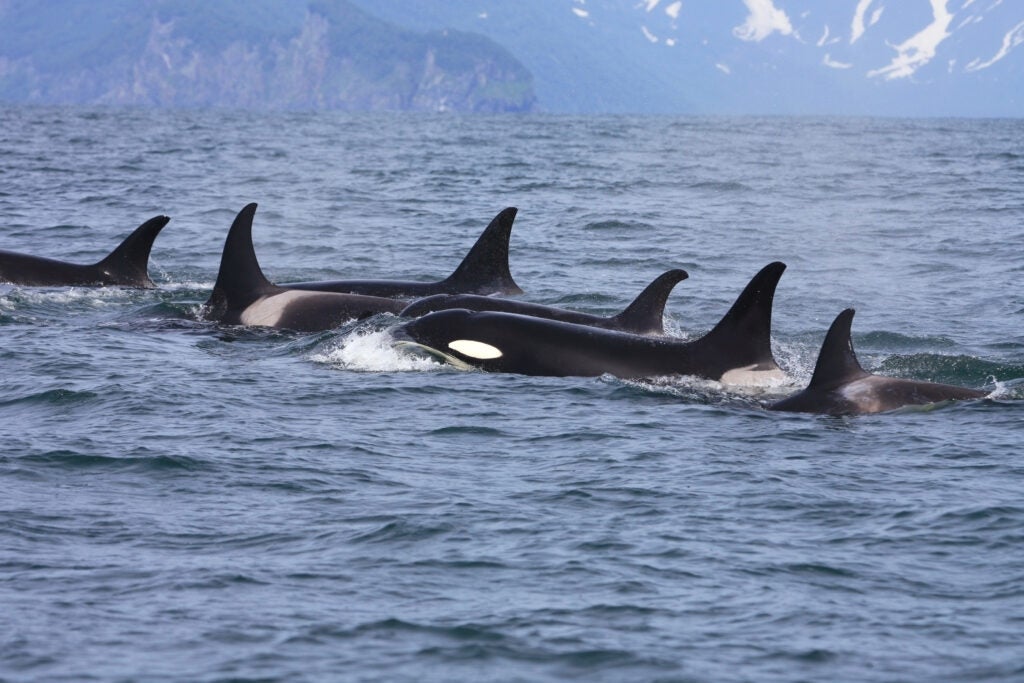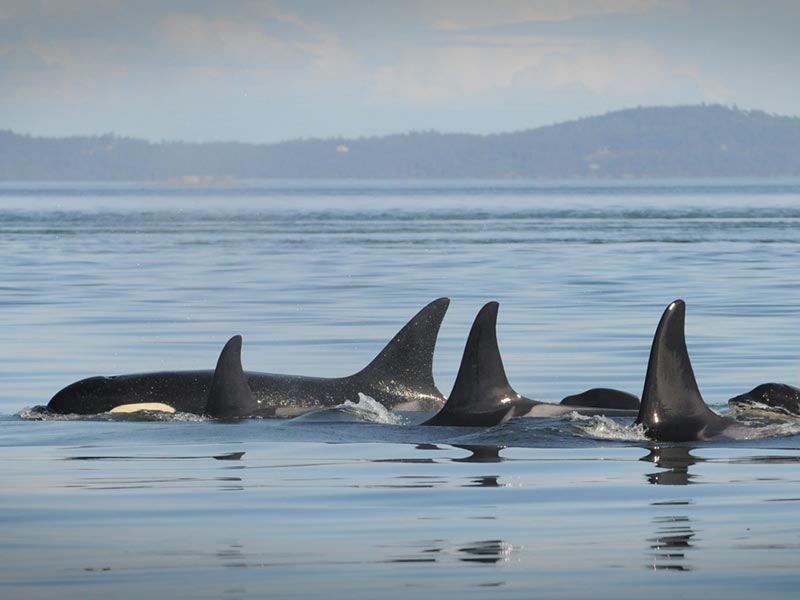Protecting Puget Sound’s Orcas
After thousands of years of stability, Puget Sound’s small band of genetically distinct orcas is facing extinction. An Earthjustice victory kept them from fading away, but continued vigilance is needed to ensure federal protections remain in place, to protect the orcas from new harmful actions, and to promote recovery.
Case Overview
Orcas are known for their intelligence, agility and playfulness. Nowhere is this more obvious than in the Pacific Northwest, where the resident orca pods attract tourists and scientists from around the world. As of 2014, this critically endangered population of killer whales has been reduced to only 80 individuals. These unique marine mammals have been decimated by the decline of salmon—their primary prey—and by toxic pollution and habitat degradation from shipping, sonar and other human activities.
Puget Sound’s extended family group of killer whales, known as the southern residents, spends much of the year hunting salmon in the waters between Washington and Canada. In the winter and spring months when salmon are scarce, they can range as far south as California in search of food. The southern resident killer whales have evolved distinct language, culture, and physical and genetic characteristics that set them apart from other types of killer whales that feed on marine mammals or roam the open ocean.
Earthjustice litigation resulted in the southern residents getting Endangered Species Act protections in 2005. Today, they are still threatened with extinction. The National Marine Fisheries Service has found that the loss of even one reproductive age female could jeopardize the existence of the species. On behalf of our clients, Earthjustice continues to work to ensure Endangered Species Act protections remain in place and is tackling the threats impeding recovery of these orcas.

Case Updates
Case page created on December 20, 2002.

